Hezbollah this week struck a military post in northern Israel using a drone that fired two missiles. The attack wounded three soldiers, one of them seriously, according to the Israeli military.
Hezbollah has regularly fired missiles across the border with Israel over the past seven months, but the one on Thursday appears to have been the first successful missile airstrike it has launched from within Israeli airspace.
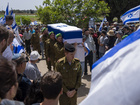 Full Story
Full Story
Some social media users are calling out celebrities for what they say is inaction in the face of a humanitarian crisis in Gaza — and they've taken to a "blockout" to pressure the stars to take a stand.
For the blockout, users put a block on seeing any and all content from the accounts of certain celebrities on social media platforms including X, TikTok and Instagram. Some have posted about the celebrities they've blocked, using a hashtag such as #blockout, #blockout2024, or #celebrityblockout, while others have shared posts from users lambasting attendees of high-glamour events like the Met Gala and contrasting it with the situation in Gaza.
 Full Story
Full Story
Palestinians on Wednesday will mark the 76th year of their mass expulsion from what is now Israel, an event that is at the core of their national struggle. But in many ways, that experience pales in comparison to the calamity now unfolding in Gaza.
Palestinians refer to it as the "Nakba," Arabic for "catastrophe." Some 700,000 Palestinians — a majority of the prewar population — fled or were driven from their homes before and during the 1948 Arab-Israeli war that followed Israel's establishment.
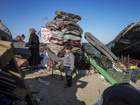 Full Story
Full Story
President Joe Biden and Israeli Prime Minister Benjamin Netanyahu have long managed a complicated relationship, but they're running out of space to maneuver as their views on the Gaza war diverge and their political futures hang in the balance.
Their ties have hit a low point as Biden holds up the delivery of heavy bombs to Israel — and warns that the provision of artillery and other weaponry also could be suspended if Netanyahu moves forward with a widescale operation in the southern Gaza city of Rafah.
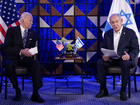 Full Story
Full Story
As it targets Hamas' underground tunnels in Gaza, Israel has relied on powerful 2,000-pound bombs provided by the United States. But now those deliveries are on hold.
The U.S. is pausing a shipment of 1,800 of the bombs, as well as 1,700 500-pound bombs, U.S. officials said. The decision comes as Israel is planning an assault on the southern Gaza city of Rafah in an attempt to root out the final elements of Hamas.
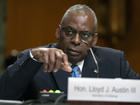 Full Story
Full Story
Hamas has formally accepted a cease-fire deal that could end the war in Gaza. Israel, however, insists that its core demands were not met in the proposal mediated by Egypt and Qatar.
The Palestinian militant group says the cease-fire would unfold in three phases of six to seven weeks each, with Israeli hostages released in exchange for Palestinian prisoners and the gradual withdrawal of Israeli forces from all of the Gaza Strip and increased humanitarian aid.
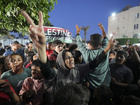 Full Story
Full Story
By Graham Liddell, Hope College
Words fail as 2,000-pound bombs shred lives and limbs.
 Full Story
Full Story
Israel and Hamas appear to be seriously negotiating an end to the war in Gaza and the return of Israeli captives. A leaked truce proposal hints at compromises by both sides after months of stalemated talks.
U.S. Secretary of State Antony Blinken this week praised Israel for offering what he described as significant concessions and saying "the time is now" for Hamas to seal the deal. Hamas leaders, meanwhile, say they are reviewing the proposal in a "positive spirit" and sending a team to Egypt in the coming days to continue the talks.
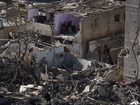 Full Story
Full Story
Israeli officials sound increasingly concerned that the International Criminal Court could issue arrest warrants for the country's leaders more than six months into the Israel-Hamas war.
Prime Minister Benjamin Netanyahu has written in general terms about ICC action against Israeli troops and officials, and Israel's foreign ministry has said it is also tracking reports of pending action.
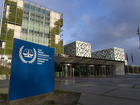 Full Story
Full Story
Months before they pitched their tents on Columbia University's main lawn, inspiring a wave of protest encampments at college campuses nationwide, a small group of pro-Palestinian student activists met privately to sketch out the logistical details of a round-the-clock occupation.
In hours of planning sessions, they discussed communications strategies and their willingness to risk arrest, along with the more prosaic questions of bathroom access and trash removal. Then, after scouring online retailers and Craigslist for the most affordable options, they ordered the tents.
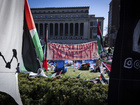 Full Story
Full Story



